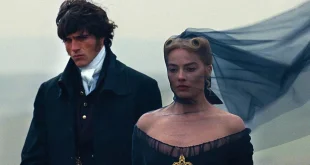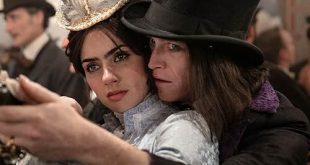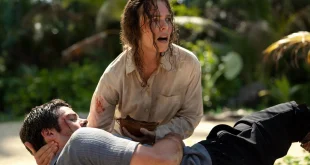Springing from Mary Wollstonecraft Godwin’s (1797-1851) fecund imagination is one of literature’s finest, bleakest, most sorrowful creatures, “Frankenstein”; written by Mary, while still eighteen years old, living with free-spirited, romantic British poet, Percy Bysshe Shelley (Douglass Booth), at the request of Lord Byron (Tom Sturridge), a rival poet; culling from her own experience, a desire to rearrange fate.
Director Haifaa Al-Mansour’s “Mary Shelley” commences with Mary’s (Elle Fanning) creativeness being squelched by her step-mother; Fanning’s performance captures Mary’s frustrated hubris, but with each depressive challenge becomes comatosely robotic.
The romantic poets, still hold their fascination, especially the works of Lord Byron (1877-1824), Percy Bysshe Shelley (1792-1822), and personal favorite, John Keats (1795-1821); this film goes the distance in damming the individual, instead of balancing their brilliance with their licentiousness. Mary, whose genes were comprised of female activist, Mary Wollstonecraft (1759-1797) and William Godwin (1756-1836), philosopher/journalist, captivates as an intransigent, determined visionary, whose prose matches Shelley’s poetry.
What should have been elucidating, focusing on Mary’s gifted clairvoyance, is instead, a treatise on the debauchery, drunken, scandalous behavior of men whose skill far out distanced their dissipation; dying young before their pens had “gleaned their teeming brains.”
Forecasting the twenty-first century’s “MeToo” movement, Mary’s wish that women, instead of having power over men, but over themselves, is flirting with fruition.
TWO & 1/2 STARS!!
Peneflix
 Peneflix MOVIE REVIEWS BY PENEFLIX
Peneflix MOVIE REVIEWS BY PENEFLIX





